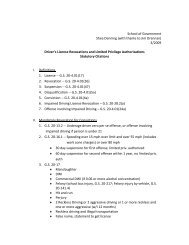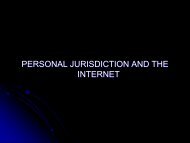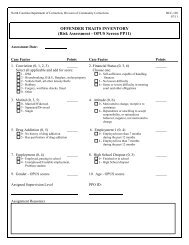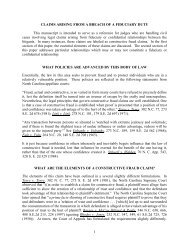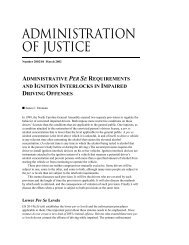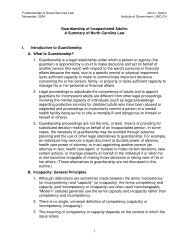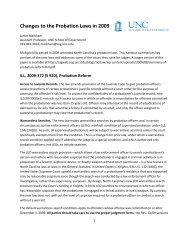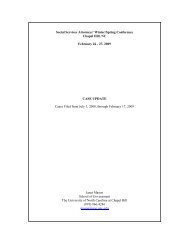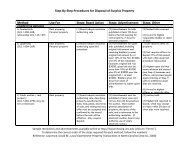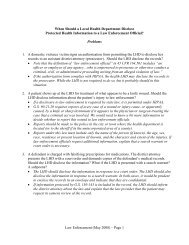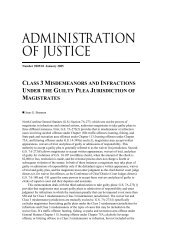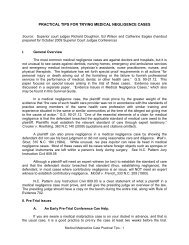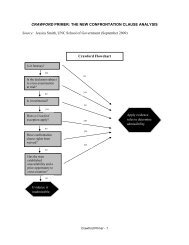Sample Forms and Colloquies
Sample Forms and Colloquies
Sample Forms and Colloquies
Create successful ePaper yourself
Turn your PDF publications into a flip-book with our unique Google optimized e-Paper software.
GENERAL RULES OF PRACTICE FOR THE SUPERIOR AND DISTRICT COURTS<br />
Rule 12. Courtroom decorum.<br />
Except for some unusual reason connected with the business of the court, attorneys will<br />
not be sent for when their cases are called in their regular order.<br />
Counsel are at all times to conduct themselves with dignity <strong>and</strong> propriety. All statements<br />
<strong>and</strong> communications to the court other than objections <strong>and</strong> exceptions shall be clearly <strong>and</strong><br />
audibly made from a st<strong>and</strong>ing position behind the counsel table. Counsel shall not<br />
approach the bench except upon the permission or request of the court.<br />
The examination of witnesses <strong>and</strong> jurors shall be conducted from a sitting position behind<br />
the counsel table except as otherwise permitted by the court Counsel shall not approach<br />
the witness except for the purpose of presenting, inquiring about, or examining the<br />
witness with respect to an exhibit, document, or diagram.<br />
Any directions or instructions to the court reporter are to be made in open court by the<br />
presiding judge only, <strong>and</strong> not by an attorney.<br />
Business attire shall be appropriate dress for counsel while in the courtroom.<br />
All personalities between counsel should be avoided. The personal history or peculiarities<br />
of counsel on the opposing side should not be alluded to. <strong>Colloquies</strong> between counsel<br />
should be avoided.<br />
Adverse witnesses <strong>and</strong> suitors should be treated with fairness <strong>and</strong> due consideration.<br />
Abusive language or offensive personal references are prohibited.<br />
The conduct of the lawyers before the court <strong>and</strong> with other lawyers should be<br />
characterized by c<strong>and</strong>or <strong>and</strong> fairness. Counsel shall not knowingly misinterpret the<br />
contents of a paper, the testimony of a witness, the language or argument of opposite<br />
counsel or the language of a decision or other authority; nor shall he offer evidence which<br />
he knows to be inadmissible. In an argument addressed to the court, remarks or<br />
statements should not be interjected to influence the jury or spectators.<br />
Suggestions of counsel looking to the comfort or convenience of jurors should be made to<br />
the court out of the jury's hearing. Before, <strong>and</strong> during trial, a lawyer should attempt to<br />
avoid communicating with jurors, even as to matters foreign to the cause.<br />
Counsel should yield gracefully to rulings of the court <strong>and</strong> avoid detrimental remarks<br />
both in court <strong>and</strong> out. He should at all times promote respect for the court.



